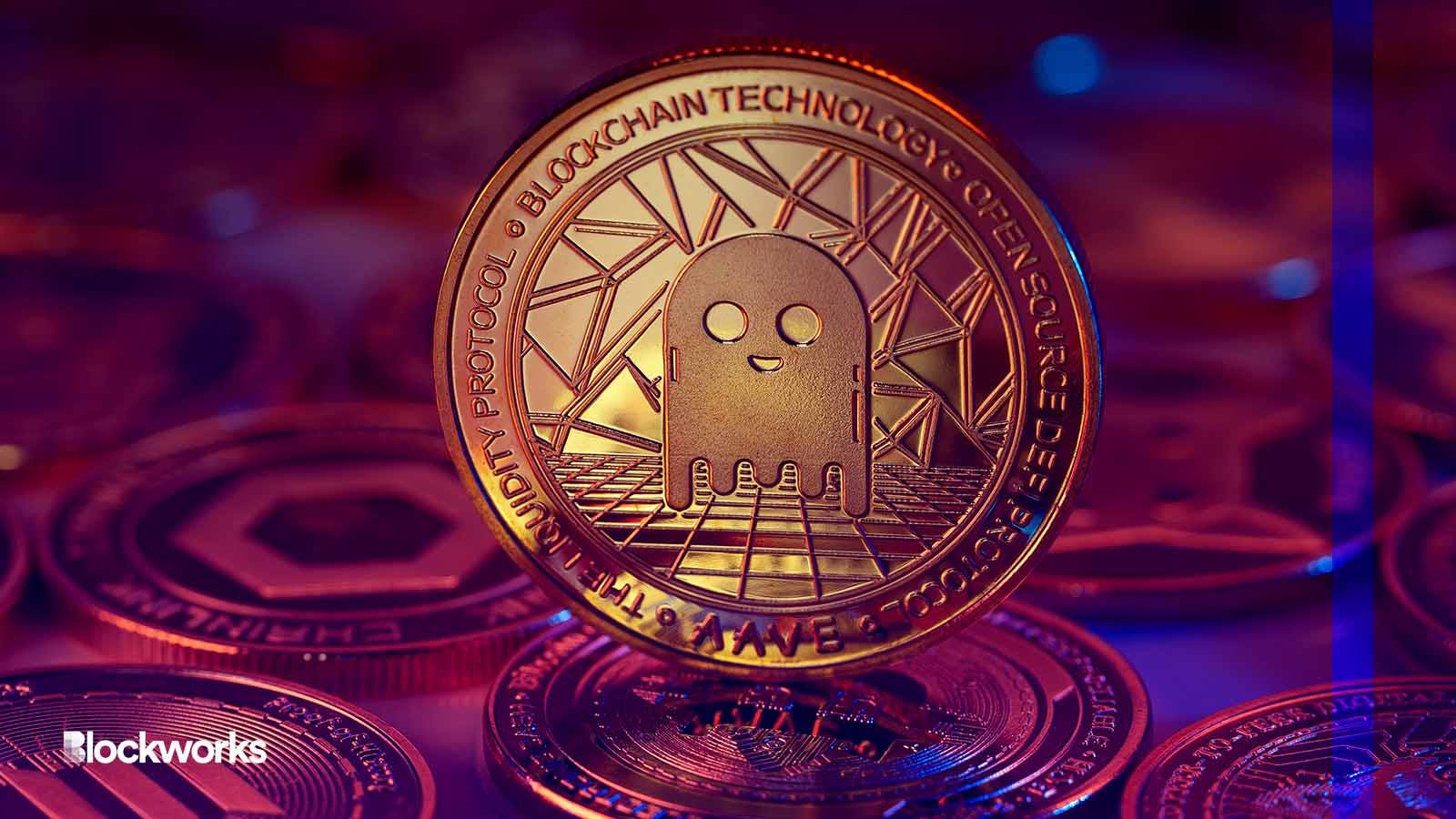GHO ‘cannot maintain its peg’ without changes, says researcher
Aave’s stablecoin has yet to hit its $1 peg — and Bluechip’s Vaidya Pallasena thinks recent tweaks won’t solve the problem

DIAMOND VISUALS/Shutterstock modified by Blockworks
Aave’s recently-launched stablecoin is struggling to stay stable, and one researcher believes current efforts to fix it will fall short.
The Aave DAO passed two Snapshot proposals last week aimed in part at helping GHO achieve its intended dollar peg. However, Vaidya Pallasena, the ratings director at stablecoin ratings agency Bluechip, thinks both are doomed to fail.
“In its current form, [GHO] cannot maintain its peg,” Pallasena said in an interview with Blockworks.
Stablecoins are one of the most popular use cases in crypto, and GHO was meant to bring additional borrowing revenue to Aave. But since the token’s July launch, GHO still has yet to reach its $1 peg, with trading at around $0.98 at the time of writing.
Pallasena thinks the peg problem can only be solved by allowing users to exchange GHO for their underlying collateral — thereby letting arbitrage bring the price to $1.
De-pegged stablecoins are ordinarily a tough sell for investors, but Pallasena said users are borrowing GHO despite its price woes because of a popular levered trade that creates exposure to the 5% yield on Maker’s popular sDAI token.
Aave governance has proposed a slew of reforms meant to bring GHO in line with its peg. At the start of September, Aave increased GHO’s borrow rate from 1.5% to 2.5%. Aave passed a Snapshot on Thursday to fund a “liquidity committee” that would increase GHO’s liquidity on Balancer, Maverick and Uniswap. On Friday, a proposal passed boosting yield on GHO liquidity pools to incentivize deposits.
Pallasena said while rate tweaks and liquidity spending can nudge the peg, they aren’t ultimately sustainable because it can still be profitable to mint underpriced GHO and trade it elsewhere. Instead, Aave should make it possible for users to redeem their collateral against their GHO, receiving a dollar in exchange for $0.98 — and moving the peg to $1.
“Facilitating arbitrage. That’s the best way to do it,” Pallasena said.
Aave passed a proposal implementing a MakerDAO-esque “GHO stability module” over the summer, which would allow users to convert between stablecoins based on arbitrage incentives. The GSM is currently undergoing audits and does not yet have an official release date.
Multiple Aave representatives could not be reached by press time.
Get the news in your inbox. Explore Blockworks newsletters:
- The Breakdown: Decoding crypto and the markets. Daily.
- 0xResearch: Alpha in your inbox. Think like an analyst.






